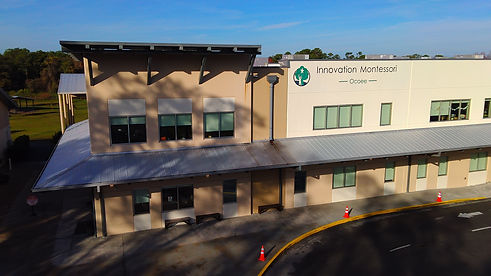The Second Plane of Development
Ages: Six - Twelve

Montessori's second plane of development spans from ages 6 to 12. This phase, also known as the "age of childhood," builds upon the foundation laid in the first plane of development (ages 0-6). In the second plane, children undergo significant cognitive, social, and emotional development, leading to unique characteristics and needs. Here are some hallmarks of Montessori's second plane of development:
Firstly, Intellectual Curiosity and Imagination: Children in the second plane exhibit a natural curiosity about the world. They ask complex questions and seek abstract understanding. Montessori classrooms nurture this curiosity by providing a rich environment filled with diverse learning materials and experiences that stimulate their imagination.
Abstract Thinking and Reasoning: During this stage, children are in transition from concrete to abstract thinking. They can grasp complex concepts, think critically, and engage in logical reasoning. Montessori materials and lessons are designed to challenge their intellect, encouraging them to explore abstract ideas and solve problems independently. The drive to abstraction becomes increasingly strong in the latter half of the second plane.
Exploring Lower Elementary At Innovation Montessori
Social Development: Second plane children develop a strong sense of social justice and empathy. They are highly interested in forming social relationships and understanding societal values. Montessori classrooms promote a sense of community where children work collaboratively, resolving conflicts through communication and empathy, fostering a deep sense of respect for others.
Independence and Responsibility: Montessori education emphasizes self-directed learning. Second plane children are encouraged to take responsibility for their education and daily activities. They develop a sense of independence, learning practical life skills, time management, and organization, fostering a sense of confidence and self-worth.
Love for Learning: Montessori’s approach focuses on nurturing a lifelong love for learning. In the second plane, children are exposed to a wide range of subjects, sparking their interests and passions. Teachers act as guides, inspiring them to explore various topics deeply, leading to a profound and enduring enthusiasm for knowledge.
Cultural Awareness: Montessori education emphasizes global awareness and cultural understanding. Children learn about different cultures, traditions, and geography, fostering tolerance, respect for and celebration of diversity. Cultural studies in the second plane help children develop a broad worldview, promoting peace and understanding which is an important feature of Montessori education.
Sensitivity to Moral and Ethical Issues: Second plane children show a heightened sensitivity to moral and ethical questions. They explore moral dilemmas, pondering questions about fairness, justice, and right and wrong. Montessori education provides a safe space for discussing these issues, encouraging thoughtful reflection and moral development.
Montessori's second plane of development is a crucial period marked by intellectual curiosity, social growth, independence, and moral exploration. The Montessori approach recognizes and respects the unique qualities of children in this stage, fostering an environment where they can flourish academically, socially, and emotionally.
The Second Plane at Innovation Montessori
The second plane is subdivided into two three-year groupings. The six-to-nine-year-old grouping is called Lower Elementary, and the nine- to twelve-year-old grouping is called Upper Elementary. We combine two classes of elementary into one large suite. This creates a larger social group for each child as they will, ideally, be in the same classroom for three years.
We have seven suites of Lower Elementary (14 classes) and five suites of Upper Elementary (10 classes). Each elementary suite has three adults – two state certified Montessori trained (or in training) teachers and a teacher assistant. Lower Elementary suites contain approximately 38 multi-aged children and Upper Elementary suites contain approximately 46 multi-aged children. Each child in our elementary suites is assigned to a particular teacher in their suite.
In the second plane we move away from following the child as children are no longer experiencing sensitive periods. In the second plane we apply the democratic delivery of instruction, meaning each child at each grade level is exposed to all the same lessons as any other child at their grade level, regardless of which suite they are in. Each teacher in a suite teaches the children on their roster one content area lesson per day. This means they give three grade level lessons per day. For example, if Monday is their math day a Lowel El teacher will teach a first-grade math lesson, a second-grade math lesson and a third-grade math lesson that day.
Exploring Upper Elementary At Innovation Montessori
We do have an open lesson policy which means that children are welcome to attend a lower or higher grade level lesson, and they may also attend the lesson being given by the other teacher in the room, which will be on a different content area.
Elementary children do get daily enrichments. Options vary from year to year but typically include subjects such as yoga/mindfulness, PE, drama, music, art and/or Spanish.
